Lupin Mira-S 50 Tablet 10's
MRP ₹623.5
(Inclusive of all Taxes)
₹93.5 Cashback (15%)
Provide Delivery Location
Online payment accepted
 Prescription drug
Prescription drugWhats That
Composition :
Manufacturer/Marketer :
Consume Type :
Expires on or after :
Return Policy :
About Lupin Mira-S 50 Tablet
Lupin Mira-S 50 Tablet is a combination medicine used to treat overactive bladder (OAB) with symptoms of urinary incontinence (urine leakage), urgent or frequent urination, increased night-time urination, and dysuria (painful or difficult urination). Overactive bladder is a condition in which there is a problem with bladder function, which causes a sudden urge to urinate that might be difficult to control.
Lupin Mira-S 50 Tablet contains Solifenacin (anti-cholinergic) and Mirabegron (beta-3 adrenergic agonist). Solifenacin reduces the undesirable contractions of the bladder, thereby increasing the amount of urine that the bladder can hold. This decreases the urgency for urination. Mirabegron relaxes the muscles of the bladder; this prevents frequent, uncontrolled, or urgent urination. Together, Lupin Mira-S 50 Tablet helps in treating overactive bladder.
You are advised to take Lupin Mira-S 50 Tablet for as long as your doctor has prescribed it for you, depending on your medical condition. In some cases, you may experience common side-effects such as dry mouth, constipation, headache, high blood pressure, and vomiting. Most of these side effects do not require medical attention and will resolve gradually over time. However, you are advised to talk to your doctor if you experience these side effects persistently.
Consult your doctor if you are pregnant or breastfeeding. Lupin Mira-S 50 Tablet is not recommended for children as safety and efficacy have not been established. Lupin Mira-S 50 Tablet may cause blurred vision, so drive with caution. Avoid or limit alcohol consumption along with Lupin Mira-S 50 Tablet as it could lead to increased dizziness. Inform your doctor about your health condition and medications before taking Lupin Mira-S 50 Tablet to rule out any side effects/interactions.
Uses of Lupin Mira-S 50 Tablet
Directions for Use
Key Benefits
Lupin Mira-S 50 Tablet is a combination of two drugs, namely: Solifenacin and Mirabegron. Lupin Mira-S 50 Tablet is a combination medicine used to treat overactive bladder (OAB) with symptoms of urinary incontinence (urine leakage), urgent or frequent urination, increased night-time urination, dysuria (painful or difficult urination). Solifenacin is an anti-cholinergic that reduces the undesirable contractions of the bladder, thereby increasing the amount of urine that the bladder can hold. This decreases the urgency for urination. Mirabegron is a beta-3 adrenergic agonist which relaxes the muscles of the bladder; this prevents frequent, uncontrolled, or urgent urination. Together, Lupin Mira-S 50 Tablet helps in treating an overactive bladder.
Storage
Drug Warnings
Do not take Lupin Mira-S 50 Tablet if you are allergic to any of its contents. Inform your doctor if you have glaucoma, myasthenia gravis, ulcerative colitis, urinary retention, high blood pressure, angioedema, kidney or liver problems. Consult your doctor if you are pregnant or breastfeeding. Lupin Mira-S 50 Tablet is not recommended for children. Lupin Mira-S 50 Tablet may cause blurred vision, so drive with caution. Avoid or limit alcohol consumption with Lupin Mira-S 50 Tablet as it could lead to increased dizziness.
Drug-Drug Interactions
Drug-Drug Interactions
Login/Sign Up
Using Mesoridazine together with Lupin Mira-S 50 Tablet can increase the risk of an irregular heart rhythm.
How to manage the interaction:
Taking Mesoridazine with Lupin Mira-S 50 Tablet is not recommended, please consult your doctor before taking it. You should seek immediate medical attention if you develop sudden dizziness, lightheadedness, fainting, shortness of breath, or heart palpitations call a doctor.
Taking Lupin Mira-S 50 Tablet and Potassium chloride together can increase the risk of stomach ulcers, bleeding, and stomach injury.
How to manage the interaction:
Taking Lupin Mira-S 50 Tablet with Potassium chloride is not recommended, as it can lead to an interaction, it can be taken if a doctor has prescribed it. However, if you experience severe stomach pain, bloating, sudden lightheadedness or dizziness, nausea, vomiting (especially with blood), decreased hunger, dark, tarry stools, consult the doctor immediately. Do not discontinue any medications without a doctor's advice.
The blood levels and effects of Lupin Mira-S 50 Tablet may be greatly increased when combined with itraconazole.
How to manage the interaction:
Lupin Mira-S 50 Tablet and Itraconazole may interact, however, if recommended by a physician, they are safe to consume. Consult a doctor if you feel sleepy, or uneasy, have an irregular heartbeat, have blurry vision, have trouble urinating, have a dry mouth, a headache, have digestive problems, or have constipation. Without consulting a doctor, never stop taking any medication.
Coadministration of Eliglustat and Lupin Mira-S 50 Tablet can significantly increase the blood levels of eliglustat. This can increase the risk or severity of side effects.
How to manage the interaction:
Taking Lupin Mira-S 50 Tablet with Eliglustat is not recommended, it should be taken only when advised by a doctor. You should seek immediate medical help if you develop symptoms like sudden dizziness, lightheadedness, fainting, shortness of breath, irregular heart rate, weak pulse, or heart palpitations. Do not discontinue any medications without a doctor's advice.
Coadministration of Lupin Mira-S 50 Tablet with Nefazodone may significantly increase the blood levels of Lupin Mira-S 50 Tablet.
How to manage the interaction:
There may be a possibility of interaction between Lupin Mira-S 50 Tablet and Nefazodone, but it can be taken if prescribed by a doctor. If you experience drowsiness, dizziness, irregular heartbeat, blurry vision, difficulty urinating, dry mouth, headache, gastrointestinal upset, or constipation, consult the doctor immediately. Do not stop using any medications without talking to a doctor.
Using nilotinib together with Lupin Mira-S 50 Tablet can increase the risk of an irregular heart rhythm.
How to manage the interaction:
There may be a possibility of interaction between Nilotinib and Lupin Mira-S 50 Tablet, but it can be taken if prescribed by a doctor. If you have any of these symptoms, like a fast or irregular heartbeat, a heart problem, or a condition called long QT syndrome, it's important to call a doctor right away. Other symptoms to watch out for include ongoing diarrhea or vomiting, sudden dizziness or lightheadedness, fainting, difficulty breathing, or feeling your heart beating fast or irregularly. Do not stop using any medications without talking to a doctor.
Coadministration of Lupin Mira-S 50 Tablet with Cabozantinib can increase the risk of an irregular heart rhythm.
How to manage the interaction:
There may be a possibility of interaction between Lupin Mira-S 50 Tablet and Cabozantinib, but it can be taken if prescribed by a doctor. If you experience drowsiness, dizziness, irregular heartbeat, consult the doctor. Do not stop using any medications without talking to a doctor.
Taking Ritonavir and Lupin Mira-S 50 Tablet may significantly increase the blood levels of Lupin Mira-S 50 Tablet.
How to manage the interaction:
Although taking Lupin Mira-S 50 Tablet and Ritonavir together can cause an interaction, it can be taken if your doctor has suggested it. However, consult the doctor immediately if you experience symptoms such as dizziness, irregular heartbeat, blurry vision, difficulty urinating, dry mouth, headache, nausea, vomiting, or constipation. Do not stop using any medications without talking to a doctor.
The combined use of Lupin Mira-S 50 Tablet and Hydroxychloroquine can increase the risk of an irregular heart rhythm.
How to manage the interaction:
Co-administration of Lupin Mira-S 50 Tablet and Hydroxychloroquine can lead to an interaction, it can be taken if advised by your doctor. However, if you experience any symptoms like dizziness, lightheadedness, fainting, shortness of breath, or heart palpitations, consult a doctor immediately. Do not stop using any medications without a doctor's advice.
Coadministration of Ribociclib with Lupin Mira-S 50 Tablet can increase the risk of irregular heart rhythms.
How to manage the interaction:
Taking Ribociclib with Lupin Mira-S 50 Tablet together can result in an interaction, it can be taken if your doctor has advised it. However, if you experience sudden dizziness, lightheadedness, fainting, shortness of breath, or rapid heartbeat, contact your doctor immediately. Do not discontinue any medications without first consulting your doctor.
Drug-Food Interactions
Drug-Food Interactions
Login/Sign Up
Diet & Lifestyle Advise
- Pelvic floor exercises would be helpful in treating bladder spasms.
- Avoid foods like sugars, carbonated beverages, tea, citrus fruits, tomatoes, spicy foods, chocolate and tea.
- Avoid drinking excess alcohol or caffeinated drinks, as they can worsen the symptoms.
- Maintain a healthy weight, and exercise regularly.
- Quit smoking.
- Take 6-8glasses of liquids every day.
- Avoid processed foods. Instead, choose whole, unprocessed foods.
- Include fruits, vegetables, and fibre-rich food in your diet.
Side Effects of Lupin Mira-S 50 Tablet
- Constipation
- Headache
- Dry mouth
- Blurred vision
- Vomiting
- High blood pressure
- Urinary tract infection
Habit Forming
Therapeutic Class
All Substitutes & Brand Comparisons
RX
Mirbeg-S 50 Combikit 1's
Ipca Laboratories Ltd
₹56.5
(₹3.64 per unit)
93% CHEAPERRX
Urihold S 50 Tablet 10's
Aristo Pharmaceuticals Pvt Ltd
₹234
(₹23.4 per unit)
58% CHEAPERRX
Out of StockSoliact M 50 Tablet 10's
Cipla Ltd
₹400
(₹36.0 per unit)
35% CHEAPER
Author Details
We provide you with authentic, trustworthy and relevant information
Drug-Diseases Interactions
Drug-Diseases Interactions
Login/Sign Up
FAQs
Drug-Drug Interactions Checker List
- DIPHENHYDRAMINE
- METOPROLOL
- ACETAMINOPHEN
- ALBUTEROL
Disease/Condition Glossary
Overactive bladder (OAB): Overactive bladder is a condition in which there is a problem with bladder function, which causes a sudden urge to urinate that might be difficult to control. The contraction or tightening of bladder muscles causes bladder spasms. Continuous contractions may cause an urge to urinate. Overactive bladder is characterised by involuntary leakage of urine, excessive urination, and urgent need to urinate. The common causes of bladder spasms are urinary tract infections, drinking too much caffeine or alcohol, diabetes, constipation, impaired kidney function, bladder stones, enlarged prostate, or neurological disorders. Symptoms of overactive bladder include urinating more than 8 times a day and more than 2 times at night, strong and sudden need to urinate, leakage of urine, and loss of bladder control.

Have a query?
Alcohol
Safe if prescribed
You are recommended to avoid or limit alcohol consumption while taking Lupin Mira-S 50 Tablet as it may cause increased dizziness.
Pregnancy
Consult your doctor
Limited information is available regarding the usage of Lupin Mira-S 50 Tablet during pregnancy. Consult your doctor before taking Lupin Mira-S 50 Tablet if you are pregnant.
Breast Feeding
Consult your doctor
Limited information is available regarding the usage of Lupin Mira-S 50 Tablet during breastfeeding. Consult your doctor before taking Lupin Mira-S 50 Tablet if you are breastfeeding.
Driving
Safe if prescribed
Lupin Mira-S 50 Tablet may cause blurred vision and tiredness. Drive or operate machinery only if you are alert.
Liver
Consult your doctor
Please consult your doctor if you have a liver impairment or any concerns regarding this.
Kidney
Consult your doctor
Please consult your doctor if you have kidney impairment or any concerns regarding this.
Children
Safe if prescribed
Lupin Mira-S 50 Tablet is not recommended for children as safety and effectiveness have not been established.

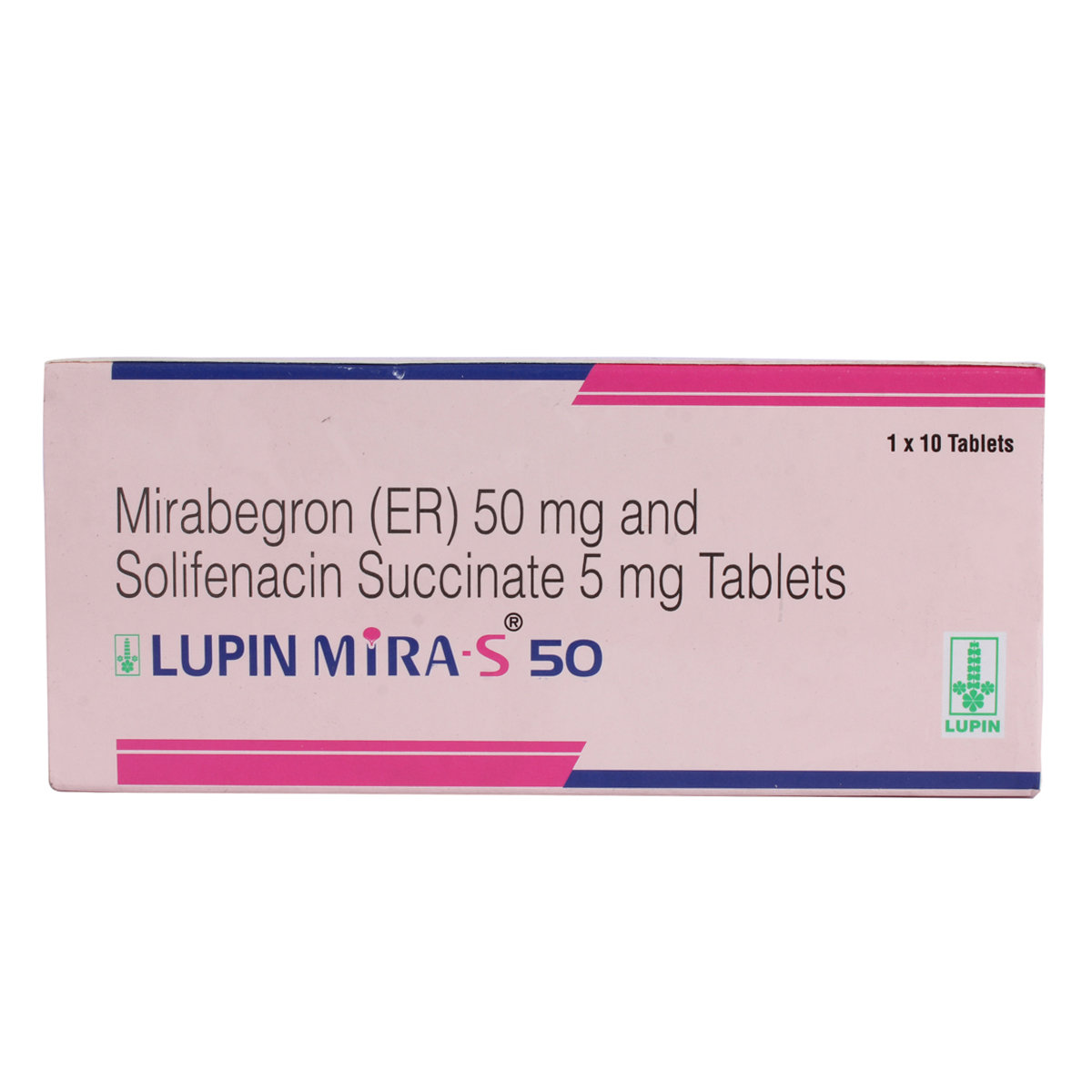
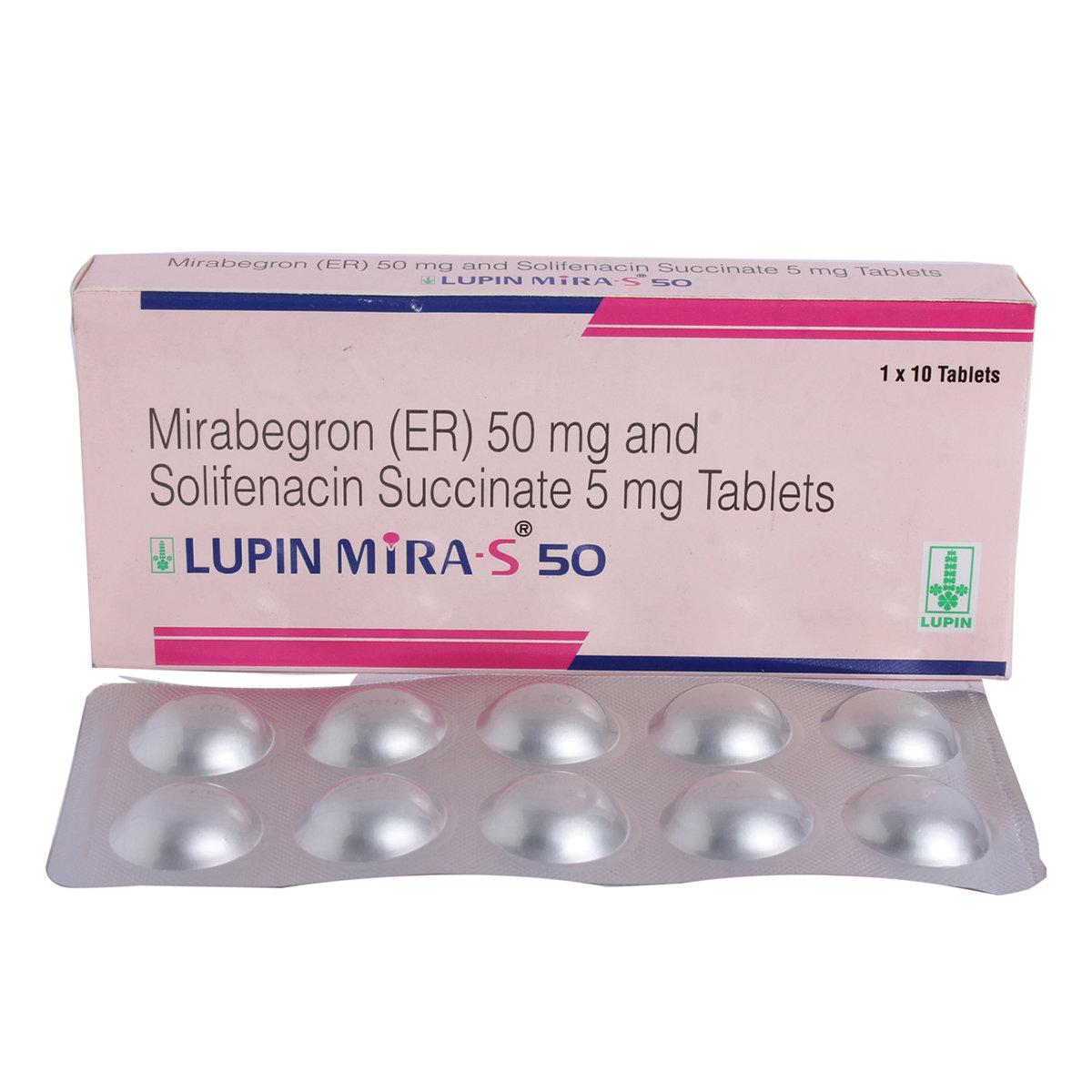
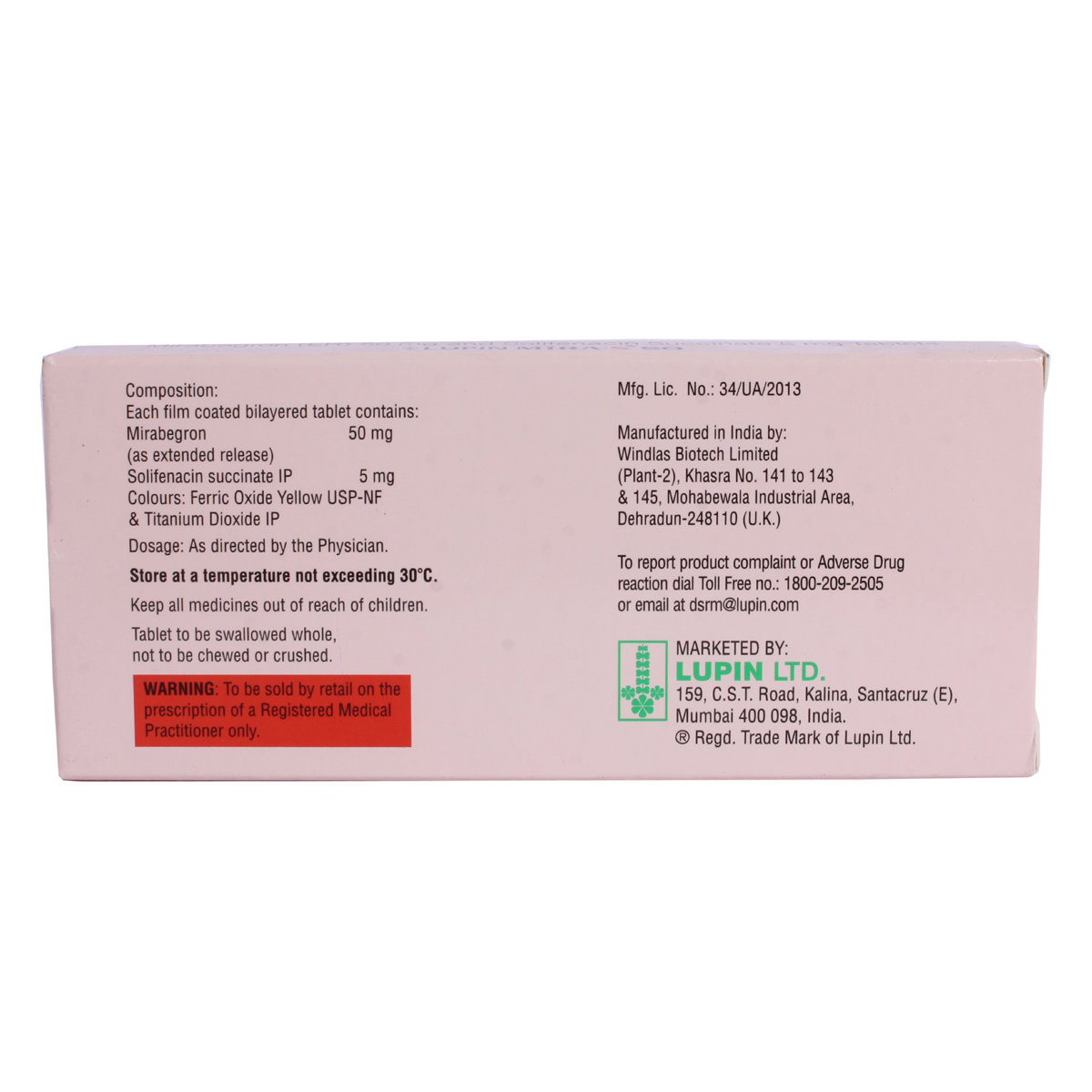






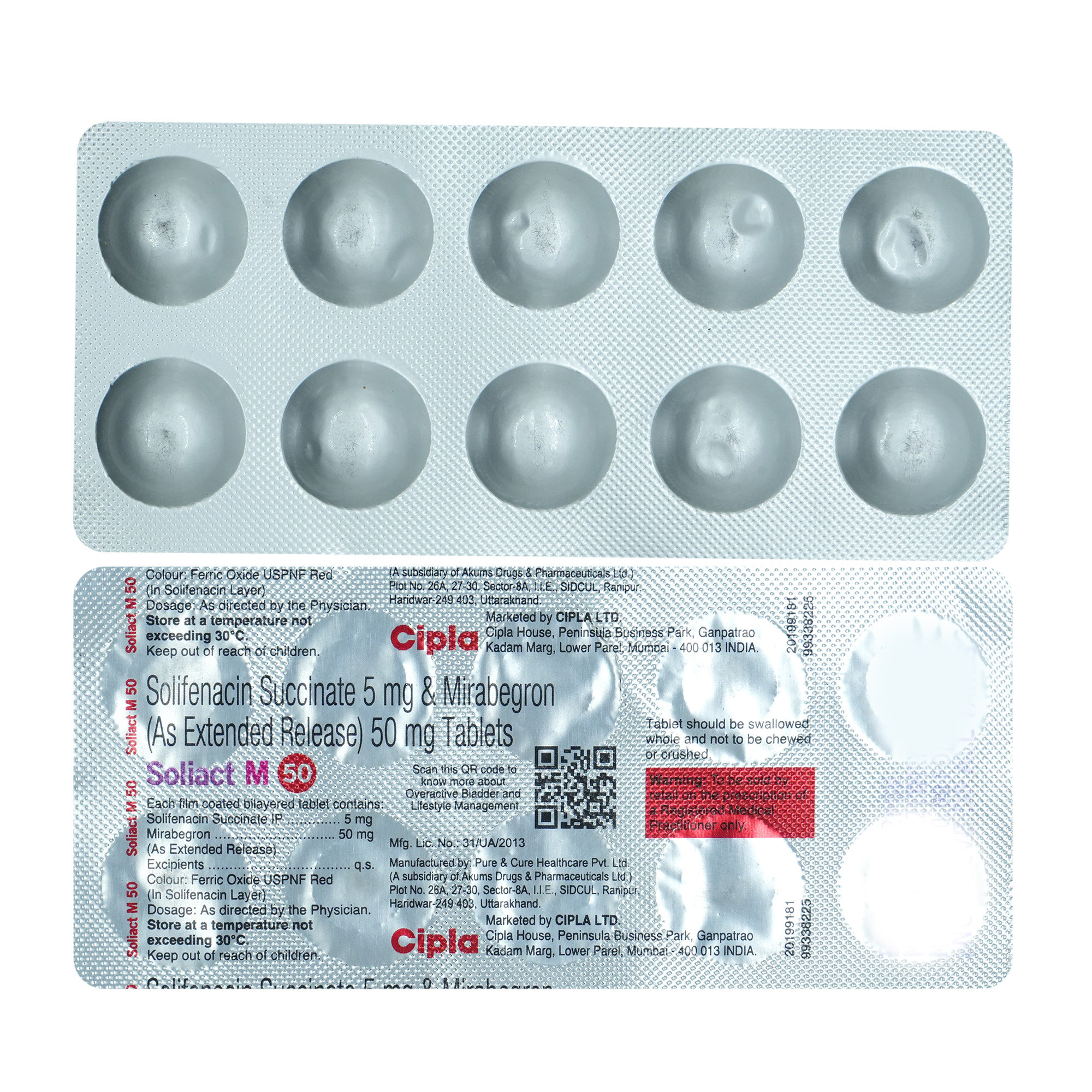
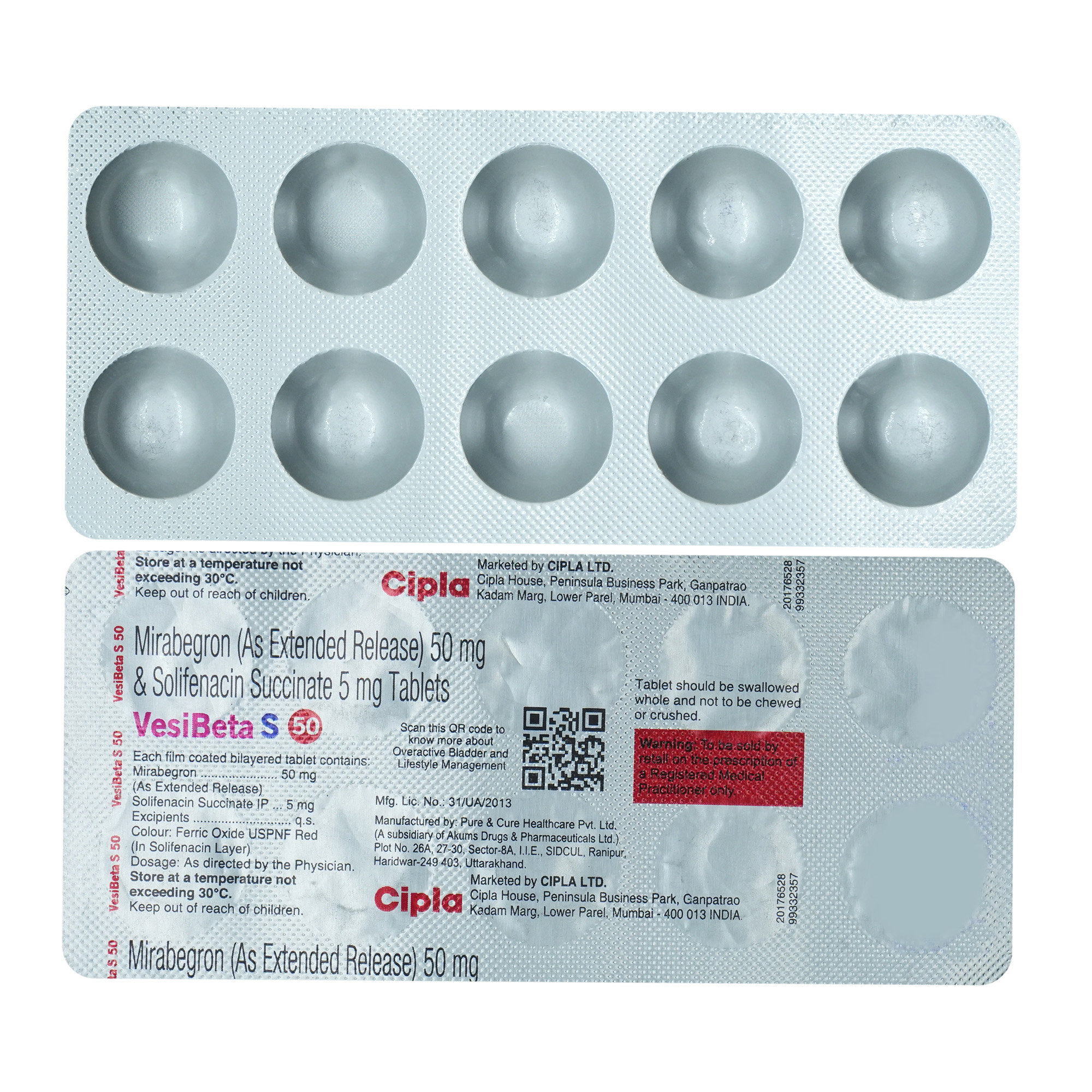
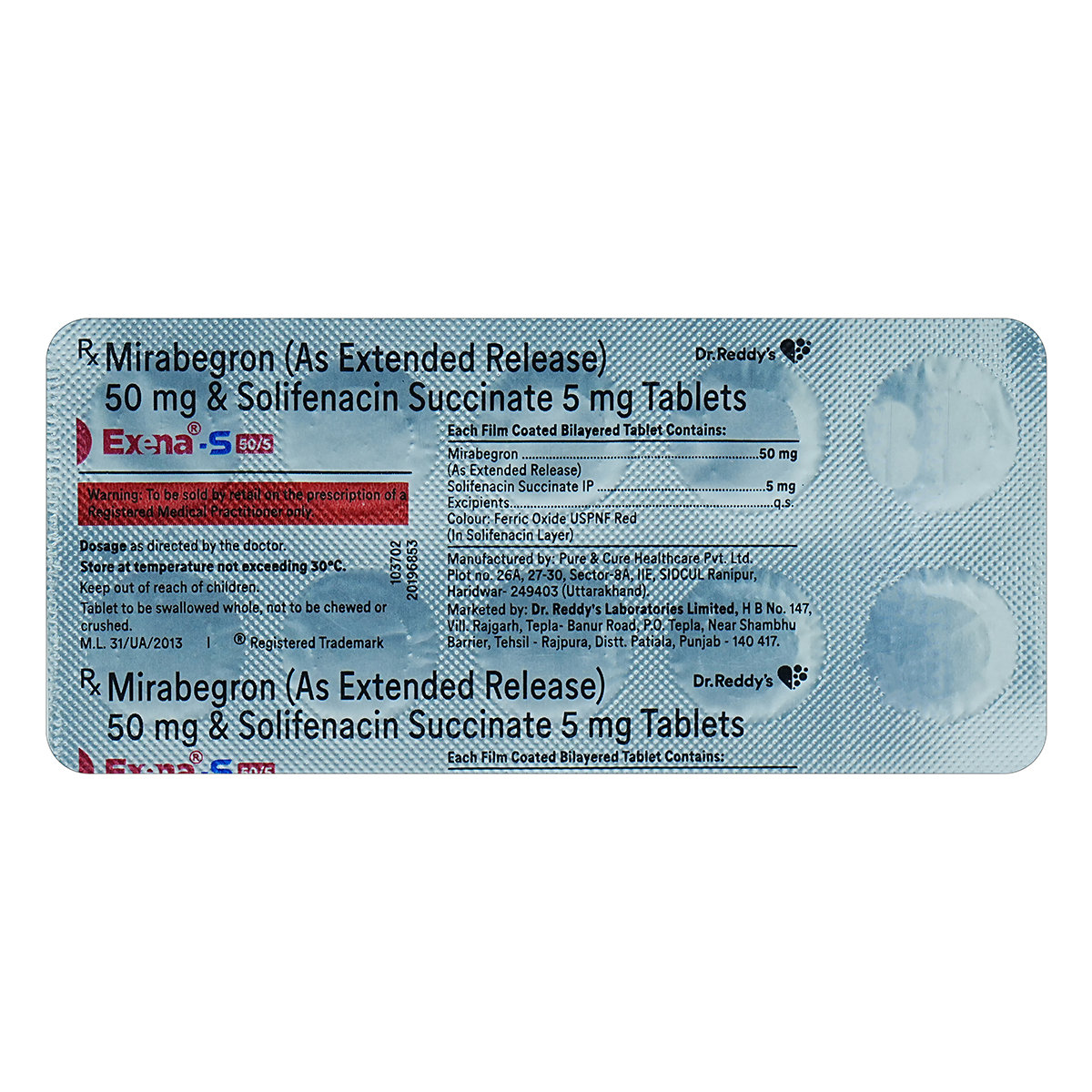


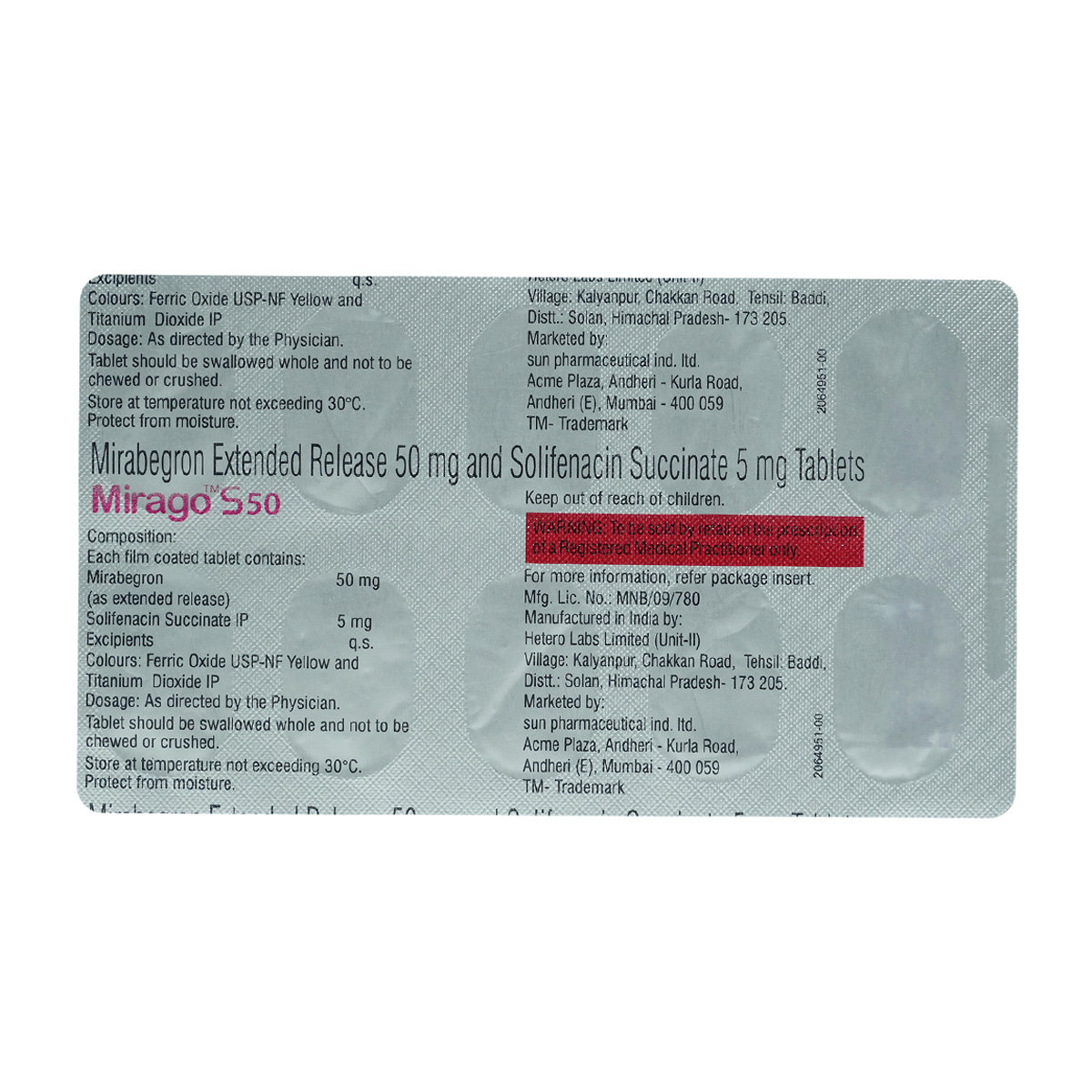
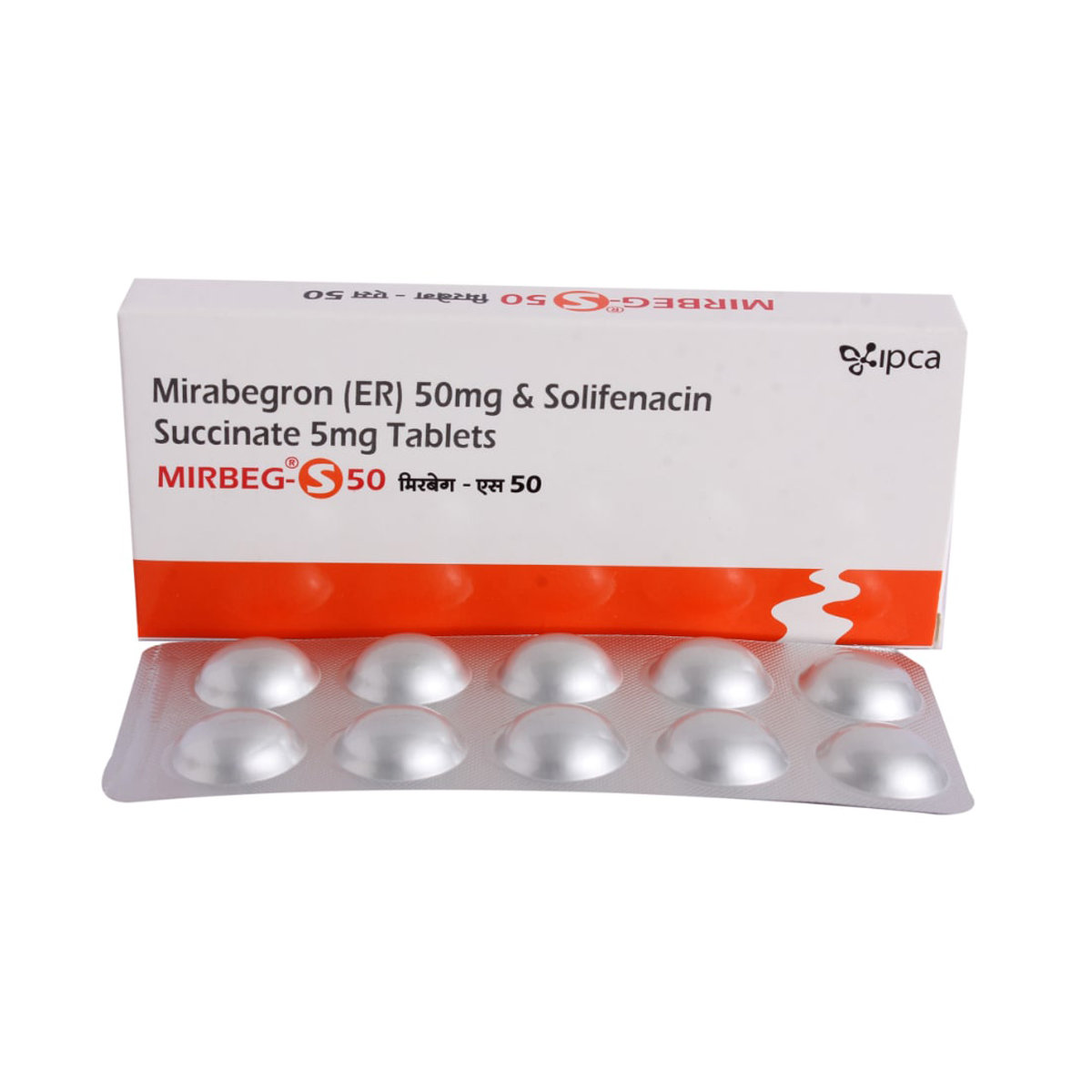
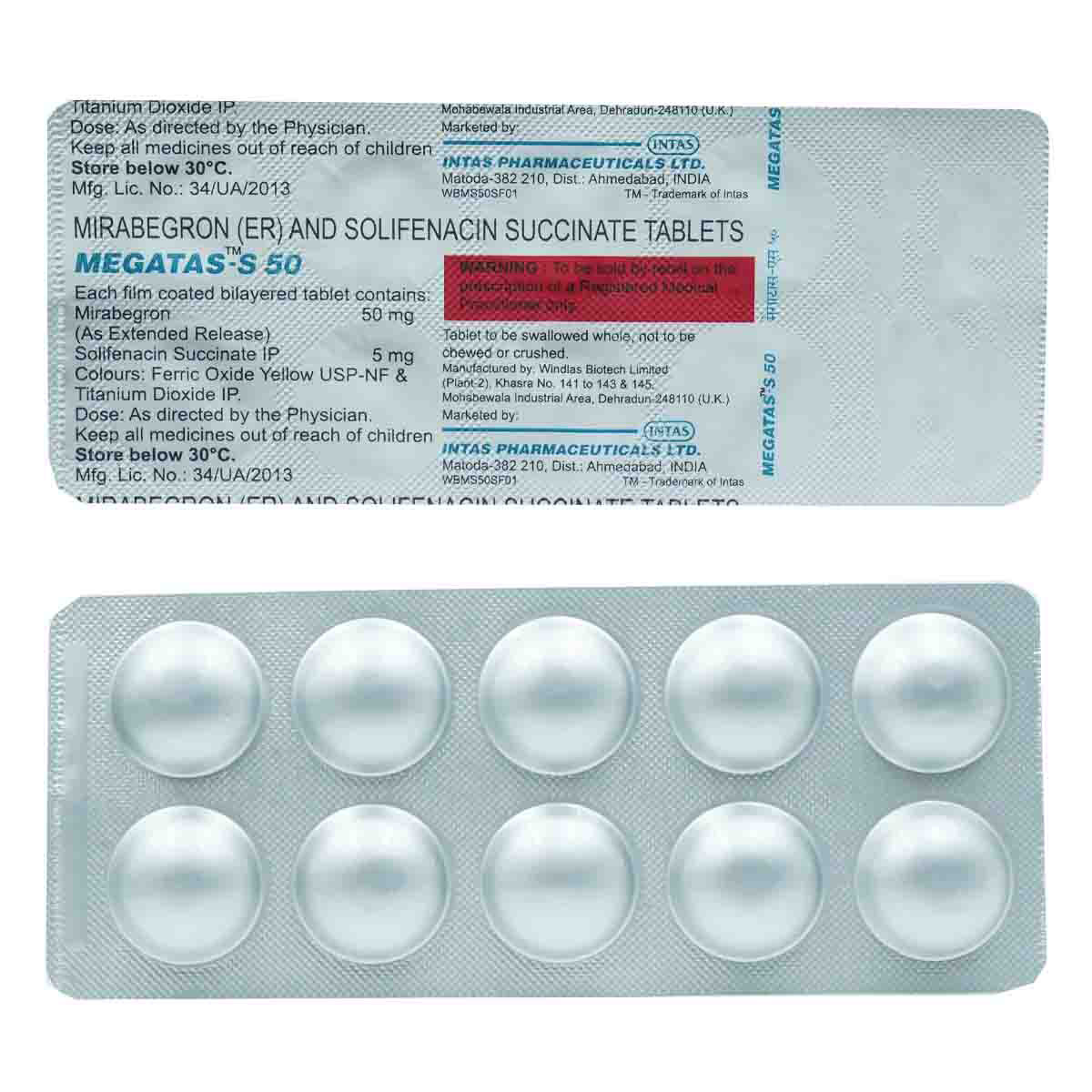
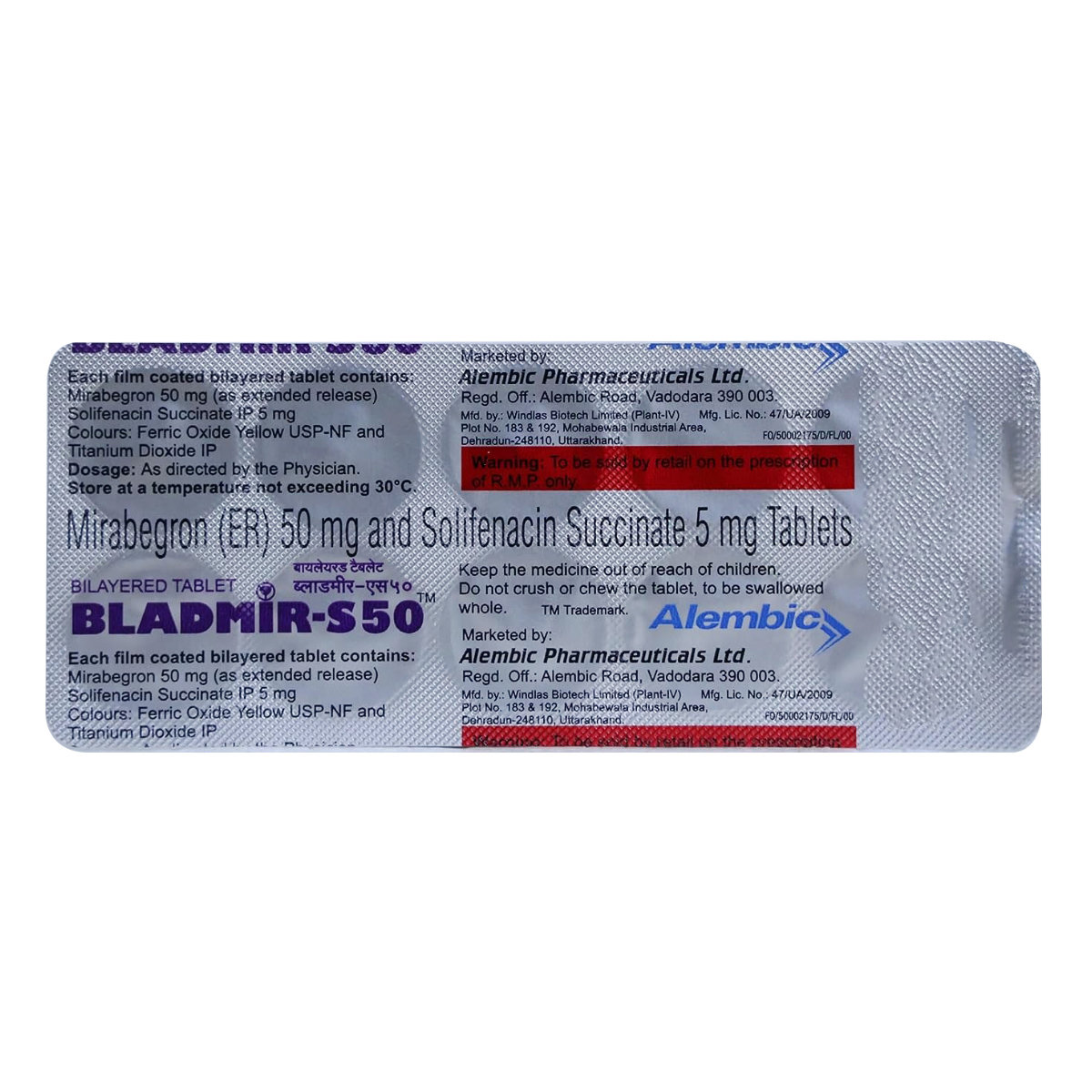

_0.jpg?tr=q-85)

